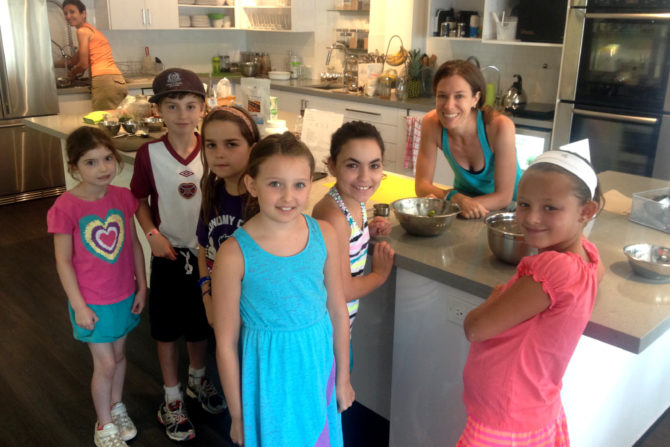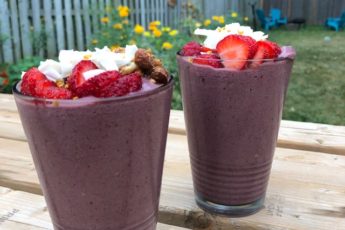Kids Healthy Eating Habits should be taught fairly early, these skills become the building blocks upon which they will thrive in their journey to adulthood. Some of the most important lessons young people learn are done so in the kitchen.
Aside from the basic skills of measuring and pouring, they also learn patience, counting, attention to detail, responsibility, kitchen and food safety, participation in family meals and a healthy appreciation for food. Children are less likely to be picky eaters when they share in the responsibility of preparing their own meals. It’s a feeling of accomplishment and independence they achieve and can help with developing their confidence.
Starting children early on assisting in the kitchen is a great opportunity to share your skills with your kids and allow them the ability to help out. And children love to help! Engaging children early on can also go a long way to prevent negative food habits in the future. A good, solid foundation from which to start can have a positive effect on how they eat, what they eat and what they choose to feed their own children or families. In the present, it can also have a great impact on how they view food and whether or not they choose to eat it.
How To Get Kid’s Involved In The Kitchen?
- Look through colourful cookbooks to meal plan with your kids and make grocery lists
- Grocery store trips are a great way to have the kid’s pick out what’s on the list and they can become more familiar with a wide variety of different fruits and vegetables
- Have conversations – what recipes look good and why, discussing what the kids think certain new foods might taste like, where in the grocery store or market ingredients might be found, how they think certain foods might be prepared and the different ways you can eat them, what foods are healthy vs. not healthy, etc.
Kids Healthy Eating Habits
Your kid’s will not only learn invaluable life skills by getting them more involved in the kitchen but they will also learn how to recognize colours, decision making, creative thinking, reading and writing, how to pick out good produce and tactile differences between foods.
Now that you have all the necessary ingredients for your recipe, you are ready to start laying out and measuring everything you need. Discussing the different forms of measurements such as cups, teaspoons and tablespoons is a great way to start this process. This can also lead into a discussion about the importance of making sure you have the right measurement the recipe calls for. While smaller children may not derive much value from the technicalities of measurements, they will have the opportunity to hone their fine motor skills by dipping cups and spoons into items such as flour and oats. Older children will gain valuable math skills with measurements as each measurement is a numerical value.
Now, the best part, putting the meal together! It’s important for children to watch the transformation of their hard prep work into a delicious meal! Have older children read each section of the instructions and ask them what the first thing they should do is. Having each child add ingredients to the mixing bowl and then mixing everything is an excellent opportunity to teach them about the wonders of kitchen science. What happens when you mix oil and water together? What colours are created when you mix food colours together? What reaction does baking soda have on other liquids? So many interesting and educational discussions and lessons can be had at this stage. You can usually tell how interested your kids are by how wide their eyes get at each stage and when changes in the food occur. They love it!
If you have prepared a recipe that requires the stove or oven, having a conversation about stove and oven safety is a good idea. Children are more likely to follow safety instructions if they know why they exist. Engaging their ideas and thoughts on safety helps them feel responsible and accountable for themselves. Of course, being present to monitor them around a hot stove or oven is required.
All these ideas teach your children valuable kitchen and life skills, get them involved and help them develop a healthy appreciation for food. Who knew food can be as educational as it is delicious? Bon appetite!



